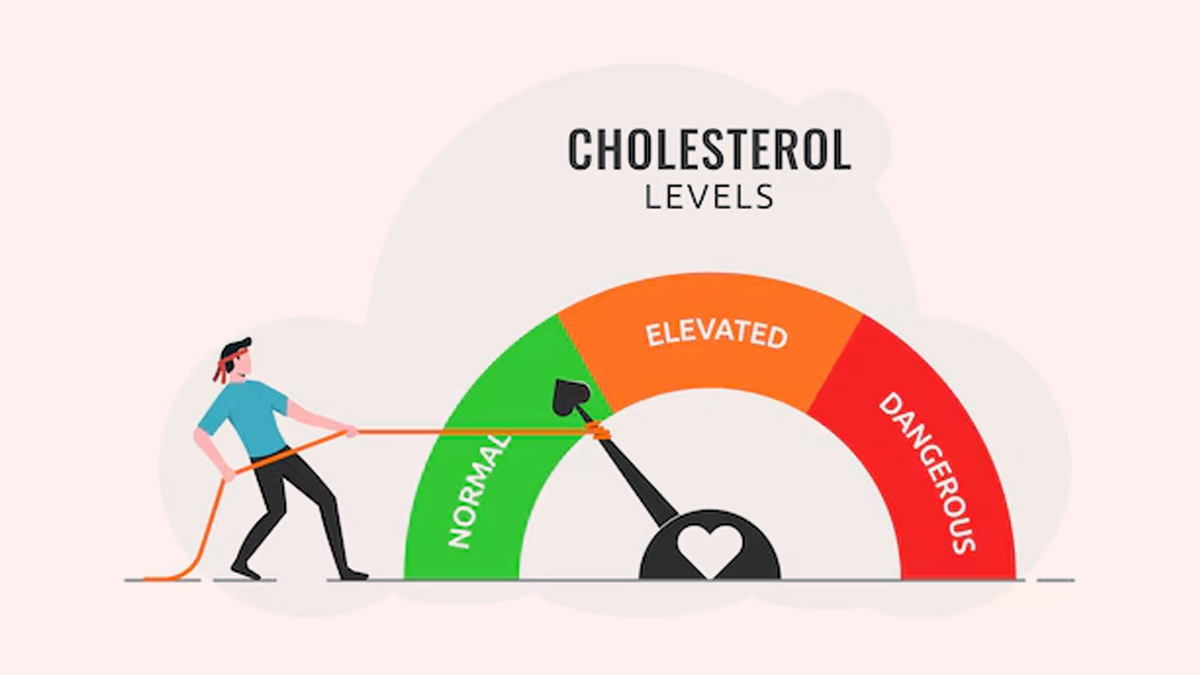
Did you know high cholesterol levels can significantly increase the risk of heart disease and stroke, making it crucial to manage cholesterol levels? Cholesterol, a lipid substance present in the bloodstream, plays a vital role in numerous bodily functions, such as cell construction and mending, bile synthesis, and hormone generation. While your body needs it to build healthy cells, high levels can pose health risks. Hence, it becomes important to take proactive measures to reduce your high cholesterol levels. We spoke to our expert Dr Bimal Chhajer, Former Consultant, AIIMS and Director, SAAOL Heart Centre, New Delhi, who listed 10 morning habits to lower your cholesterol levels.
Table of Content:-
Effective Morning Routine To Reduce High Cholesterol

Start with Warm Lemon Water
“You should begin your day by drinking a glass of warm lemon water. Lemon contains pectin fibre, which can help lower cholesterol levels. Also, the vitamin C in lemon water may promote heart health by reducing inflammation”, said Dr Chhajer.
Sip on Green Tea
Skip your morning coffee and replace it with green tea. According to a 2020 study, green tea includes catechins and additional antioxidant compounds that appear to assist in reducing LDL and total cholesterol levels.

Eat a Heart-Healthy Breakfast
Dr Chhajer added, “Opt for a breakfast rich in soluble fibre, such as oatmeal topped with berries or a slice of whole-grain bread with avocado. Soluble fibre helps lower Low-Density Lipoprotein (LDL) cholesterol levels by reducing its absorption in the bloodstream.”
Also Read: Cholesterol Inside Heart And Leg Arteries: Expert Lists Warning Symptoms You Shouldn't Ignore
Include Plant Sterols
Add foods fortified with plant sterols or stanols into your morning meal. Look for fortified orange juice, yoghurt, or margarine spreads. According to Harvard Health Publishing, plant-derived sterols and stanols disrupt the body's absorption of cholesterol from dietary sources. Consuming 2 grams of these compounds daily can reduce LDL cholesterol levels by approximately 10%.
Consume Omega-3 Fatty Acids
Don't forget to add sources of omega-3 fatty acids to your breakfast, such as flaxseeds, chia seeds, or walnuts. In addition to lowering triglyceride levels, omega-3s can lower heart disease risks.

Practise Mindful Eating
“Never eat your meal in a hurry. Take time to savour your breakfast and eat mindfully. This is because eating slowly and paying attention to hunger cues can prevent overeating and promote better cholesterol management”, highlighted Dr Chhajer.
Get Moving
Engage in physical activity shortly after waking up. According to the National Heart, Lung, and Blood Institute (NHLBI), regular exercise and minimising sedentary habits aid in weight management, thereby assisting in the reduction of LDL cholesterol levels. Moreover, exercise contributes to elevating HDL cholesterol, reducing triglycerides, enhancing cardiovascular fitness, and decreasing high blood pressure.
Limit Sugary Foods
Consuming sugary breakfast items like pastries, sweetened cereals, and flavoured yoghurts is a big no. High sugar intake can lead to weight gain and negatively impact cholesterol levels.
Take Your Medication as Prescribed
If you're on cholesterol-lowering medication, take it as prescribed by your healthcare provider. Consistent adherence to medication can effectively manage cholesterol levels and reduce the risk of cardiovascular complications.
Practise Stress Reduction Techniques
You should include stress reduction techniques in your morning routine, such as meditation, deep breathing exercises, or journaling. Chronic stress can elevate cholesterol levels, so finding ways to manage stress is essential for heart health. In a study conducted in 2013, data from 91,593 individuals revealed a significant association between job-related stress and unhealthy cholesterol levels.
Bottomline
It's essential to consult with your healthcare provider before making significant changes to your diet or exercise regimen, especially if you have existing health conditions or are taking medication.
[Disclaimer: This article contains information provided by an expert and is for informational purposes only. Hence, we advise you to consult your expert if you notice any complications to get the necessary treatment.]
Also watch this video
Read Next
Kim Kardashian’s Met Gala Extreme Corseting Raises Health Concerns; Here’s How It Can Harm You
How we keep this article up to date:
We work with experts and keep a close eye on the latest in health and wellness. Whenever there is a new research or helpful information, we update our articles with accurate and useful advice.
Current Version